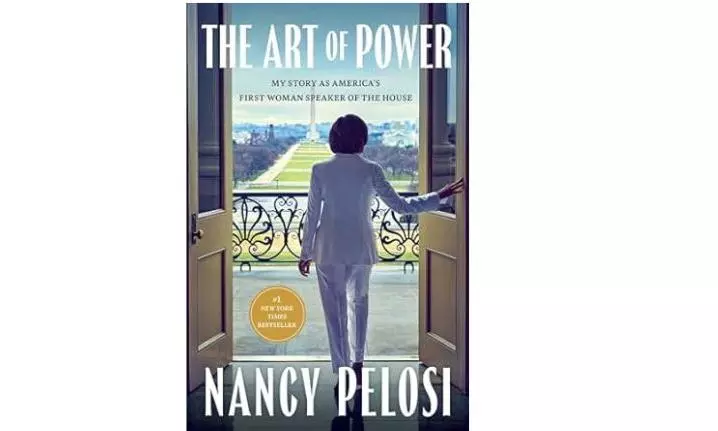Book Review | Gritty Nancy’s memoir teaches how to inhabit power

As the United States stands on the precipice ahead of its November 2024 elections, Nancy Pelosi’s memoir Art of Power emerges as a well-timed reflection on the essence of leadership and the dynamic of power.
It is a riveting exploration of her journey from a housewife to the first female Speaker of the United States House of Representatives, all while navigating a political landscape that seemed designed to keep women like her on the sidelines. Imagine stepping into a room filled with scepticism and male ego, where your very presence is seen as a challenge. That was Pelosi’s reality in 1987, when she entered Congress as part of a meagre “women’s wave” alongside just 12 other Democratic women and 11 Republicans.
Pelosi’s motivations were clear — she didn’t just come to Congress for the job; she came for the children and the future. But don’t mistake her passion for sentimentality — her mission was fortified by a “spine of steel”, not a Hallmark card. The memoir crackles with her trademark sarcasm as she recounts the political battlegrounds she faced, from the Affordable Care Act to the January 6 insurrection, which she describes as just another Tuesday in her extraordinary life
What stands out is her unapologetic embrace of being vilified. She recounts Republican attack ads that depict her in flames, transforming Congress into a bizarre reality show where she’s cast as the villain. Kevin McCarthy even joked about hitting her with the Speaker's gavel — truly mature behaviour from the Opposition. No Democratic leader had indeed ever invited her to leadership meetings before her rise. Yet Pelosi handles these moments with grace, knowing that being constantly demonised is often a sign that you’ve made it.
But Art of Power isn’t merely a highlight reel; it’s a profound meditation on leadership and what it means to fight for meaningful change. Pelosi doesn’t shy away from addressing Donald Trump, whom she critiques not only for his name-calling — like dubbing her “Crazy Nancy” — but for his utter disregard for the dignity of the presidency. His revisionist history comments are met with disbelief and humour, leading her to ponder how truth has been eroded in politics.
In closing, Pelosi leaves readers with a poignant thought — true power comes from the scars earned in battle. She imagines presenting these scars to her Creator as proof of her fight for something greater than herself. The great philosopher Friedrich Nietzsche once said, “He who has a why to live can bear almost any how.” To Pelosi, her “why” was always clear, and it’s what has kept her standing in a world where most would have long fallen.
Dr Shubhda Chaudhary is the founder of Middle East Insights Platform
The Art of Power
Nancy Pelosi
Simon & Schuster
pp. 352; Rs 999

